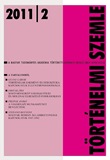Egy szociális törvény a rendeletalkotás útvesztõiben: a vasárnapi munkaszünet bevezetése Magyarországon
A Social Law in the Labyrinth of Statute Making: The Introduction of Sunday as Holyday in Hungary
Author(s): Anikó PrepukSubject(s): History
Published by: Magyar Tudományos Akadémia Bölcsészettudományi Kutatóközpont Történettudományi Intézet
Summary/Abstract: In Hungary the state regulation of work was a relatively late development, and the framework of production based on private contracts had consequently lived on until the 1890s unaffected by laws and collective agreements. The evolution of liberalism in Hungary did not result in the emergence of social liberalism, and thus its representatives continued to expect the easing of social tension not from the state but, in the token of social self-care, from the independent initiatives of the different social groups. It was in the beginning of the 1890s that the government tabled a bill concerning Sunday holiday as well as health and accident insurance. Among the first Hungarian social acts, the present study examines the conditions of the introduction of Sunday as holiday. It presents on the basis of ministerial documents, the contemporary press and parliamentary sources the consequences of the fact that in the absence of an effective theoretical-political movement, sensitive to the social question, and of considerable trade unions, the whole problem of social care, and of Sunday holiday as an important part of it, was taken on by the state bureaucracy. It analyses in detail the problem of how the effectiveness of this late-born protective social legislation was hindered by ministerial statutes authorising exemption from holydays, which played a key role within the system of Hungarian legal regulation. Namely, the prevalence of the state’s social policies was hugely influenced by the fact that in the countries east of the river Elbe the state boasted an extraordinary power of statute-making, based on the autocratic principle of unrestricted state authority, which resulted in its turn in the wide discretional powers enjoyed by the administration and the extensive legislative functions assumed by the executive. The law which enacted in 1891 the suspension of industrial work on Sunday thus suffered from a basic weakness, which stemmed from the fact that the authority to regulate holydays was divided between the parliament and the ministries. Although the need to curb the power enjoyed by the latter emerged frequently in the course of legislation, such criticism failed to prevail against the legal procedure based on the autocratic interpretation of the law. The compulsory nature of the law was greatly diminished by the regulation of exemptions from holydays through statutes, which, in the absence of a definition of protected professional groups, made possible the unlimited alteration of the categories liable to exemption.
Journal: Történelmi Szemle
- Issue Year: 2011
- Issue No: 02
- Page Range: 183-214
- Page Count: 32
- Language: Hungarian

